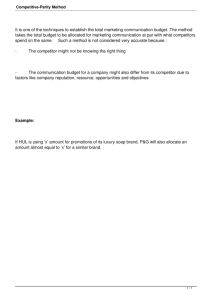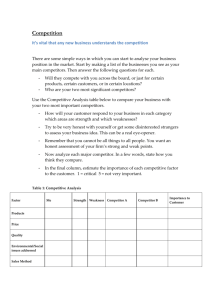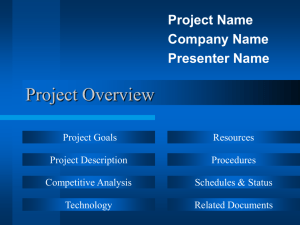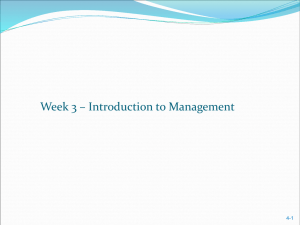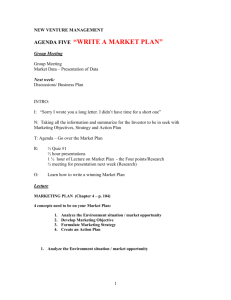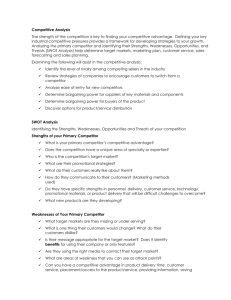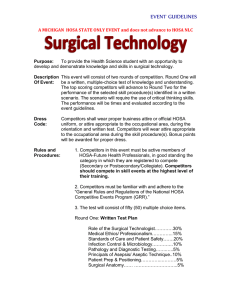Competitor Analysis Example - SME BUSINESSLINK COMMUNITY
advertisement
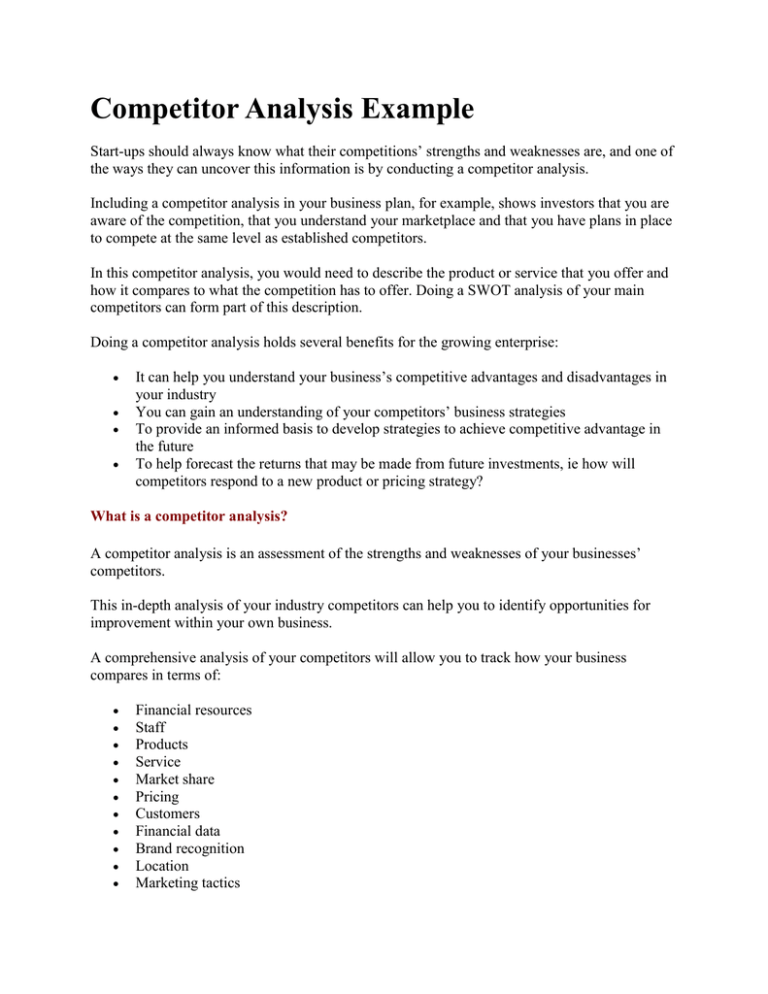
Competitor Analysis Example Start-ups should always know what their competitions’ strengths and weaknesses are, and one of the ways they can uncover this information is by conducting a competitor analysis. Including a competitor analysis in your business plan, for example, shows investors that you are aware of the competition, that you understand your marketplace and that you have plans in place to compete at the same level as established competitors. In this competitor analysis, you would need to describe the product or service that you offer and how it compares to what the competition has to offer. Doing a SWOT analysis of your main competitors can form part of this description. Doing a competitor analysis holds several benefits for the growing enterprise: It can help you understand your business’s competitive advantages and disadvantages in your industry You can gain an understanding of your competitors’ business strategies To provide an informed basis to develop strategies to achieve competitive advantage in the future To help forecast the returns that may be made from future investments, ie how will competitors respond to a new product or pricing strategy? What is a competitor analysis? A competitor analysis is an assessment of the strengths and weaknesses of your businesses’ competitors. This in-depth analysis of your industry competitors can help you to identify opportunities for improvement within your own business. A comprehensive analysis of your competitors will allow you to track how your business compares in terms of: Financial resources Staff Products Service Market share Pricing Customers Financial data Brand recognition Location Marketing tactics Logistics When you have completed your competitor analysis, you will be able to come up with a strategy to make the most of opportunities in your industry – and to deal with potential threats before they arise. Sources of information about your competitors In today’s information age, finding information about your competition’s business is easier than you’d think. Online searches should provide information that is published and available for general consumption. This is where you’ll find: Annual reports Company profiles Product brochures Press releases Articles published in the media Presentations. Then there is data that will require some investigation and research, such as pricing, marketing campaigns, promotions and so on. Other good sources of information about your competition include trade shows, conferences and seminars.
